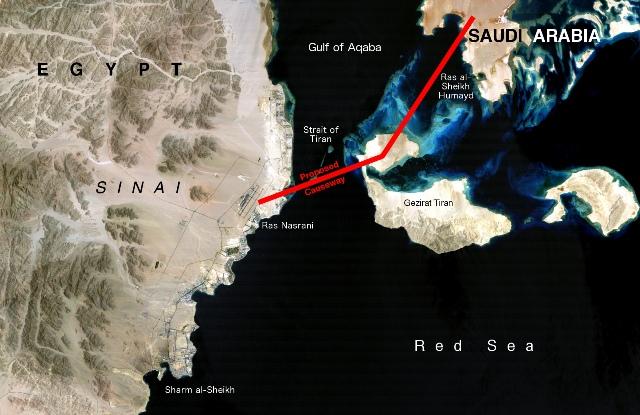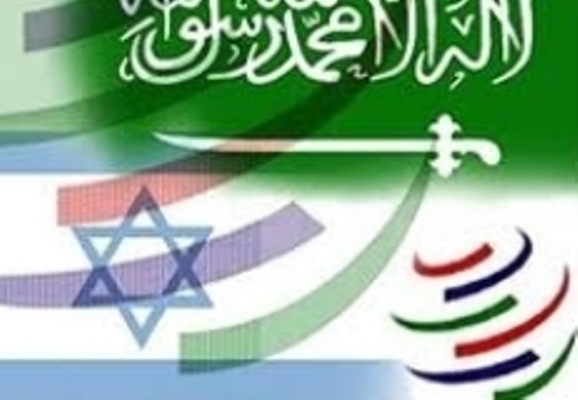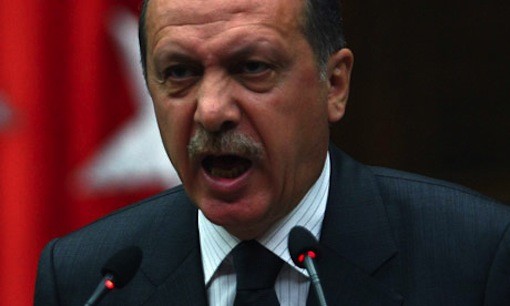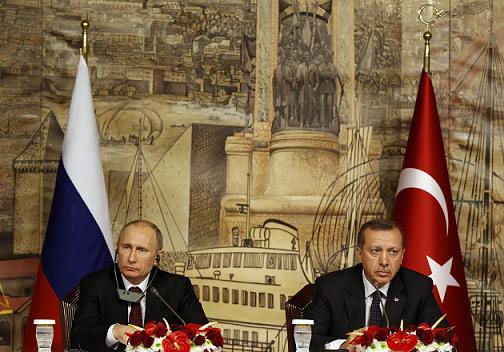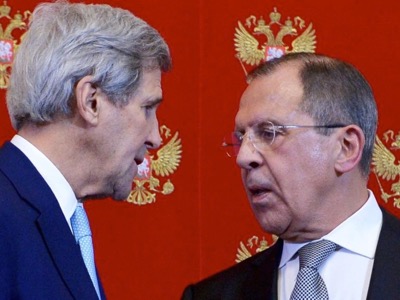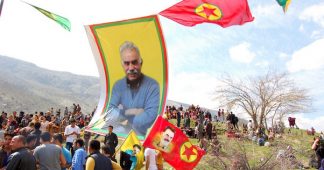Mamdouh Habashi *, January 11th 2016
Five years after the great rebellion called “The Revolution of January 25th 2011” in Egypt, a balance is due. After such a time interval one is better able to judge events. Now it is obvious that this uprising is only the beginning of a long revolutionary road. There is still much more to be achieved.
The Counter-Revolution
The struggle between the rebelling masses and the old regime is the fate of every revolution in history. This rebellion has mobilized mainly the forces of the counter- revolution, both the brutal violent force, as well as the delicate strategic thinking “soft” power, which I refer to as the class brain.
In the case of Egypt 2011, this struggle was very clear from the first day. The “Supreme Council of Armed Forces” (SCAF) had sacrificed Mubarak to protect or even save the whole regime from further radicalization by the popular movement.
The military leadership has indeed theatrically saluted with military honors the martyrs of the great Revolution but at the same time they have severely resisted any claims of this movement.
Every achievement was only made possible thanks to massive combat missions. Two demonstrations with more than a Million demonstrators in March 2011 were necessary to overthrow the nominee of Mubarak’s cabinet. Two more followed to arrest Mubarak’s sons and his clique and bring them to tribunal in April. And for that alone to happen, this revolutionary wave had to continue with undiminished momentum until July 2011.
The maxim of the SCAF was therefore; make minimal concessions towards the revolutionary forces and retain maximum of old power structures. In order for this tactic to work, the SCAF has entered into an alliance with the political power, the only force in the “class”, which did in fact dispute the Mubarak regime about its share of the power, the Muslim-Brotherhood and all the other groups of political Islam.
Both forces (SCAF & Muslim Brotherhood) are sharing the same class interests. The Muslim Brothers found themselves heavily underrepresented in Mubarak’s power structures. Then came their historic opportunity with this alliance to increase their share of political power significantly. For this they would rein in the rebelling masses.
To address this revolutionary revolt, the SCAF took up two tactics; on the one hand they used brutal violence against the rebellious on the street and on the other hand they formed an alliance with the Muslim Brotherhood including all its other groups. Both allies have the same hostile attitude towards the revolution. The SCAF involves the Muslim Brotherhood in the political power, i.e. much more than during Mubarak’s time, and in return the Muslim Brotherhood will be responsible for “cooling” this intolerable revolutionary “heat” on the streets and thus curbing the whole movement before it gets more radical and even provokes more “damage”.
Despite this unholy dangerous alliance, the revolutionary movement proved for the first year to be strong and steadfast. The SCAF gave the Muslim Brotherhood the constitutional committee and the legislative power. However, as February 2012 came to an end, the Muslim Brotherhood started to claim more power, and thus ended the harmonic phase of this alliance.
The Muslim Brothers were not satisfied having only legislative power – they wanted executive power too. After much conflict and with the support and pressure of the United States, they went from having only four ministers in office, to having Morsi as president.
The struggle against the Muslim Brothers
The tactic of the Muslim Brothers did not work out for two reasons:
1. The strong and open support of the Muslim Brotherhood by the West reduced their popularity. The West was – and perhaps still is – convinced that the Muslim Brotherhood is the better and more sustainable protection for its interests in the region. The Muslim Brothers are definitely the better partner of the West, when it comes to the implementation of strategies such as “The New Middle East”, to the fragmentation of the large Arab states, that could possibly in the future oppose the Western geostrategic plans in the region, which are in the first place Iraq, Syria and Egypt. In these plans, the Muslim Brotherhood should reign over the new Islamic caliphate, consisting of a variety of small dependent states, all of which depend on the “drip” and by the grace of the West.
2. The unconditional support from the West made the Muslim Brothers so arrogant. Slowly they lost touch with reality. First, they no longer adhered to the agreements of power sharing with their allies, the SCAF and the entire old regime, and then suddenly they claimed the whole and absolute power alone.
The resistance of the people against the domination of the Muslim Brothers began quite early, namely with the workers’ strikes in August and September 2012. But after the infamous constitutional declaration of Morsi of November 22nd 2012, in which he gave himself the absolute rule over all three powers of the state and also protected this power against any kind of accountability, both political forces moved together for only one clear target; to end the rule of the Muslim Brothers. These two forces were the people’s revolutionary forces on the one hand and the power centers of the old Regime (SCAF, state bureaucracy, etc.) on the other. A unique and rarely occurring, naturally temporary, alliance between the people and one of its enemies. Both forces had seen or realised in the Muslim Brotherhood, the existential threat.
Problems after the second change of power
The complexity of this situation created stress in the revolutionary camp due to large differences of opinion. It was a question of assessment of the greatest or even only the greater risk. For those who believed the loss of the state to be the greatest danger, toleration of the old regime was the only solution. Others, who felt that the return of dictatorship and the old regime was the greater risk chose to ignore the terror of the Muslim Brothers.
Opposite to this scenario of the huge stress in the left camp, the masses are clearly on the side of their army leadership (represented by Sisi), for they were seen to have saved these masses from the horrible fate under the Muslim Brothers. With the fall of the Muslim Brotherhood-power resigned its danger to the second place, which does not mean that this danger no longer exists. This risk is far from being banished forever, because there are still many forces, inside and outside, exerting enormous pressure on their return, though not in the same form. This shifted the struggle against the dangers of the old regime into the first place.
Many people in the revolutionary camp, especially those who are still young, sink into despair when they see how the old regime is regaining strength and has conquered back its lost bastions in the last 5 years one by one.
Their superficial perception is “Nothing has changed!”. Slowly but surely, more and more people from this camp recognize, how false and misleading this “perception” is, because the Revolution has changed the people. Since the fall of the Islamist domination we are witnessing a new phase in the long and certainly not rectilinear process of the revolution. The people demand only the achievement of the stated goals of its revolution “Bread, Freedom, Social Justice and Human Dignity”, and indeed with the newfound awareness of self-confidence; “We have outed in two years, two of the worst dictatorships, we can also drop the third and fourth!”. Meanwhile, you may see it daily, that disgruntled Egyptians immediately threaten in small or large groups for their demands with ordnance (such as strike, demonstration, leaflets, media … etc.) and also translate it into action.
It is important to observe the qualitative difference between the pure union demands (during Mubarak-time) and the political demands of this new phase of the movement. The only still missing lesson, which the masses are about to learn now and during the coming years, is the crucial necessity of organization at a national scale.
Egypt, an old / new player in the region
The old/new regime in Egypt will adapt to the new situation. The ruling regime in Egypt has learned the following two lessons from these five turbulent years:
- ThePeople’sMovementhasbecomeafactorintheequationofforces equilibrium, which one can no longer ignore in the future.
- For the realization of its strategy, “The New Middle East”, the USA is demanding much more than simple dependence or subordination; they do not accept less than the total abandonment of the State. The strong support of the Muslim Brotherhood from the West was because they have accepted exactly that, else it should push Egypt in a scenario such as in Syria, Iraq, Yemen or Libya, i.e. endless and brutally destructive civil wars.
Due to lessons learnt and the instinctive will to survive, the regime has had to limit its total dependence on the United States to merely an economic dependence. This explains the role of the regime as a new want-to-be-“global player” in the newly formed regional and global alliances or axes.
The general consensus between the people and the military leadership after the fall of the Muslim Brotherhood’s rule on July 3rd 2013 was the formation of a democratic modern and civil state (i.e. not military and especially not based on religion). For this goal, the “Road Map” was announced with its three phases as a kind of contract between the rulers and the people; Step 1: adopt a new constitution, Step 2: parliamentary elections and Step 3: presidential elections.
With a voter participation of 38.6% the Constitution was adopted by a 98.1% majority, the presidential elections have been brought forward and the last – and most important – step has had to wait until recently (The first session of the newly elected Parliament was held on January 10th 2016). Throughout this period the discourse of “foundation of modern democratic and civil state” has been transformed to “preservation of the Egyptian state at all”. The questions; which country or which state are to be obtained, were more and more suppressed. One can say with a clear conscience today; the “Road Map” acclaimed two years ago has been reduced to the election of the President, because the Constitution adopted in 2014 has never been respected since then, neither in the Legislation nor in the executive power.
The Deep State
For more than 60 years this deep-rooted state has not believed in the role of parties in politics and in shaping political decisions. Many features that are normally assigned to the parties in a modern state, especially when these parties are in power, are here considered by the authorities of the “power” as encroachment on their “exclusive rights”. These bodies of power of the state do not accept that the parties exercise power, even if these carry the title of “ruling party”.
Egypt was ruled since 1952 exclusively by power organs such as Presidential office, cabinet, defense and interior ministry, intelligence, …etc. A ruling party had nothing to do with that at all.
A quick look at this difficult legacy partly explains the dilemma of the revolutionary or even progressive parties of today, i.e. after the political “earthquake” of January 2011. They do not just grow up in a society that does not have, or has not lived, this party culture for three generations, but they are also fighting against a powerful, deep and hostile state apparatus to assert themselves and claim their proper role in the society.
On the 3rd of July 2013, the “deal” between the West and the Muslim Brotherhood in Egypt burst. The change of regime and the disempowerment of the Islamist party surprised the West, almost like the collapse of the Soviet Union. The Obama administration – and accordingly all the EU countries – insisted on a yearlong boycott of the new power in Egypt with a ridiculous justification; it was a military coup against a democratically elected president. This discourse found no credibility in the Egyptian population at all, because the Mubarak Era had shaped the perception of the simple Egyptian so, that the democracy and human rights in our countries have never been the concern of the West.
Pragmatic as always, the United States – and behind them the entire EU – had to rethink their attitude towards the new regime in Egypt and soon also rotate by about 180°. It took a whole year.
The military coup is now welcome
Especially important is the cooperation in the security policies, which is massively expanded since the beginning of 2015. The main purpose of the EU is to stabilize Egypt. Libya has proved to be a boomerang and now the massive flow of Refugees into Europe forces the EU to stabilize Egypt. Brussels wants to further reduce the “illegal migration” and that is only possible today if Cairo is fully involved. Accordingly, compliance with human rights standards is only mentioned in passing, Sisi instead is praised as an important ally in the anti-terror fight.
Military cooperation between Egypt, Spain and the UK appears to have been increasing strongly since the beginning of the year 2015. Berlin on the other hand is actively involved in reinforcing the police sector. For the EU, the goal here is to integrate Cairo in the Fortress Europe. Even smugglers are now on the hit list of the government in Cairo, just as in Europe, because Europe trains and provides the necessary material.
This language is also spoken by the recent arms deals. France sells its first Rafals abroad, of all Egypt will have 24 of those considered overpriced airplanes and now also gets a Mistral ship after Paris had already delivered a Fremm frigate – in time for the inauguration of the Suez Canal project.
Economically, the machine has not been started properly yet. Although European firms invest in major projects in Egypt and make a lot of money, for the time being it seems Europe’s interest in Egypt is mainly on security policy, while the American interest is of a geostrategic nature.
Europe’s primary interest is the immediate “stabilization” of Egypt to act as a bulwark against “illegal migration”. And in terms of political security (See Sinai and the Islamic State) Europe wants to reinforce linking the country again to its policies, after the revolution of 2011 had forced a temporary realignment of this policy, i.e. police, military cooperation and arms sales. Spain, France, the UK and Germany play a key role here, and there is particular interest coming from Paris. Another object of this and other countries (Italy) are likely to secure the investments by European companies in Egypt, because Europe’s economy has a lot to lose here locally. Most of these companies and their Egyptian franchise pay very little or no taxes. Thanks to the low wage costs, the profit margins are accordingly very high.
Nothing learned
The neoliberal oriented economic policies of Mubarak have been simply just continued under Sisi. He has learned nothing, or he cannot jump over his own shadow. Sisi and his governments rely on foreign investments – shown clearly through the designation of the Suez Canal project as a special economic zone. The exact details of this zone are not yet clear, though it would not be surprising if once again the regime here tries to attract foreign companies with tax benefits and similar measures. Although the Suez Canal expansion was financed entirely with capital from Egypt, this is not exactly the whole picture. During the conference in Sharm in March 2015, the German company Siemens announced multibillion dollar investments in the country. The gas field off the Egyptian coast is also likely to be exploited by ENI, so here also the profits are flowing to Europe, Egypt is mostly not the real winner of such projects. Yes, indeed, the influence of Russia and China on Cairo is now stronger (see the agreement for the construction of the new atom reactor on the Mediterranean coast with Russia and the many large-scale projects with China) but the influence of Washington and Brussels is still continuously high and decisive.
In the past two years we have heard much about the massive financial support to Egypt from the Arab Gulf states – Egypt still depends further on a drip of IMF and World Bank. Nevertheless, the primary interest of the West on Egypt is not economic in nature, but geo-strategic. To support Egypt economically at the moment is only to serve and maintain this overall objective.
But what does the Egypt-stabilization mean for the West?
It only means the continuation of the unquestioned neo-liberal course, which has been implemented since 1974 by Sadat and was continued since then incessantly. This policy may not even be questioned, because it is the only guarantee for the continuation of the dependence relationships between Egypt and the West. Mubarak, SCAF, Morsi or Sisi; none of them want to admit that it is precisely this course that is causing tension in society. No one wants to admit that this course determines entirely both the domestic as well as foreign and economic policies. At the end of the day, it is the restoration of all structures of the old regime but perhaps with new “look”, i.e. it should look “democratic”, which I now strongly doubt. The recent behavior and measures of the Sisi regime during the parliamentary elections period and thereafter show a clear tendency towards a blunt dictatorship. This is why the West and its policy towards all countries of the MENA region should be counted among the forces of the counter-revolution.
How the West is able to do this is actually quite simple. The slogans raised by the West in our region are currently حق يراد به باطل, i.e. “right, with which wrong is intended”. This is an old and widely used Arab idiom. “Democratic elections” is the key phrase and at the same time the trap of any popular movement. Here, the West again insists on its own exclusive definition of democracy, which reduces democracy to the counting of votes in the ballot box. This has absolutely nothing to do with improving the social and economic situation of the popular masses.
The situation today, 5 years later
- Egypt is exposed to a huge extensive attack of the counter-revolution. This counter-revolutionary wave is both at the same time the cause and the consequence of the large losses in living standard of the lower classes, i.e. the majority. These classes now connect their confused political consciousness with the sharp deterioration in their quality of life, and consequently see the revolution as the direct cause.
- The regime in Egypt is still in the process of forming. The power relations are still not clearly defined. There are still several centers of power which are fighting fierce battles among themselves below the surface, for their share of the power. Therefore, the governance is characterized more by crisis management, the crisis of the regime, which is not even able to keep these internal battles among factions under control.
- Despite the many efforts of the regime in the war on terror an end to this ordeal cannot yet be seen. The ambiguous policy of the regime in this fight is the reason. On one side everybody can see political Islam as the immediate cause of terror, on the other hand nobody wants to continue the process of secularization, which was started in the 19th century. The regime is preventing it downright.
- The economy remains in Egypt, as elsewhere, the cornerstone of the social crisis; record unemployment, recession, decline of the national currency, disproportionate external and internal debts, huge shortages of government balance sheets and budgets, paralyzed state apparatus, disintegration of all services and social security, and corruption that reaches every corner of society to the extent that the state itself is no longer capable of protecting its property. To this point, attacks on state property have become commonplace. At the same time the regime has adopted, in the absence of parliament, a series of laws which curtail massively the social and economic rights of the poorer classes, and these have been explicitly enshrined in the new Constitution.
- Undoubtedly, the Egyptians welcomed the return of the police after the bloody confrontation with the Muslim Brotherhood. Today the Egyptians see the police again as their oppressor.
- While most Egyptians still see in their army the savior from the terror of the Muslim Brothers, slowly but surely more and more people are beginning to realize that their military has now exceeded its competences and abuses its power day in day out. One no longer speaks about the military tasks of the military, but only about their political and especially economic deeds and achievements, that of course could never be subjected to any accountability.
- WiththecreationofthenewParliamentinDecember2015theregimepretends to have ended the so-called “Road Map” of July 3rd 2013, and thus it has fulfilled all its duties and commitments. This is far from being true, because the composition of this Parliament is reminiscent of the parliaments of Mubarak, although the manner of manipulation has slightly changed somehow. The very low turnout is the unequivocal answer of the population to this manipulation (the official figure is 26% while observers estimate under 10%). This formal fulfillment of the “Road Map” deceives no one, least of all the Egyptians. The new parliament is certainly not a council of representatives of the political forces in the society, but rather an association of large employers, financial jugglers, corruption Spot deeds and criminals. It will perform more destabilizing, not as the regime hopes.
The danger of the current crisis in Egypt, indeed throughout the Middle East, stems from its dual character. It is the crisis of the ruling regime but also of the masses at the same time. For the moment, we may ignore the legitimacy shrinkage of these regimes, because this is nothing new. The unquestioned neo-liberal economic course focuses the added value and all the wealth in the hands of ever smaller oligopoly and thereby exacerbates the polarization of classes in society. On the other hand, the political consciousness of the victims of this policy, the masses of the people, on a level, which does not allow them to force radical reforms – not to say change of course. Therefore, the situation Is increasingly turning into an unpredictable anarchy.
In order to curb the impact of popular movements and let them expire without any results, the West bets on the continuation of these anarchic tendencies with the help of political Islam. This leads to the transfer of the struggle of the oppressed from the real world into the world of metaphysics and therefore in the world of ISIS, Al-Qaeda and the similar organizations … and when this happens, we should not be surprised.
*Mamdouh Habashi (65), Engineer, Member of the Polit-Bureau and Head of the International Office of the Socialist Popular Alliance Party SPA in Egypt, Vice-President of the World Forum for Alternatives WFA Board Member of the Arab & African Research Center in Cairo AARC
